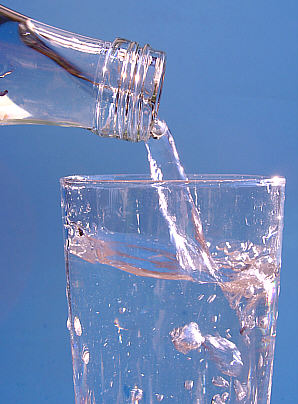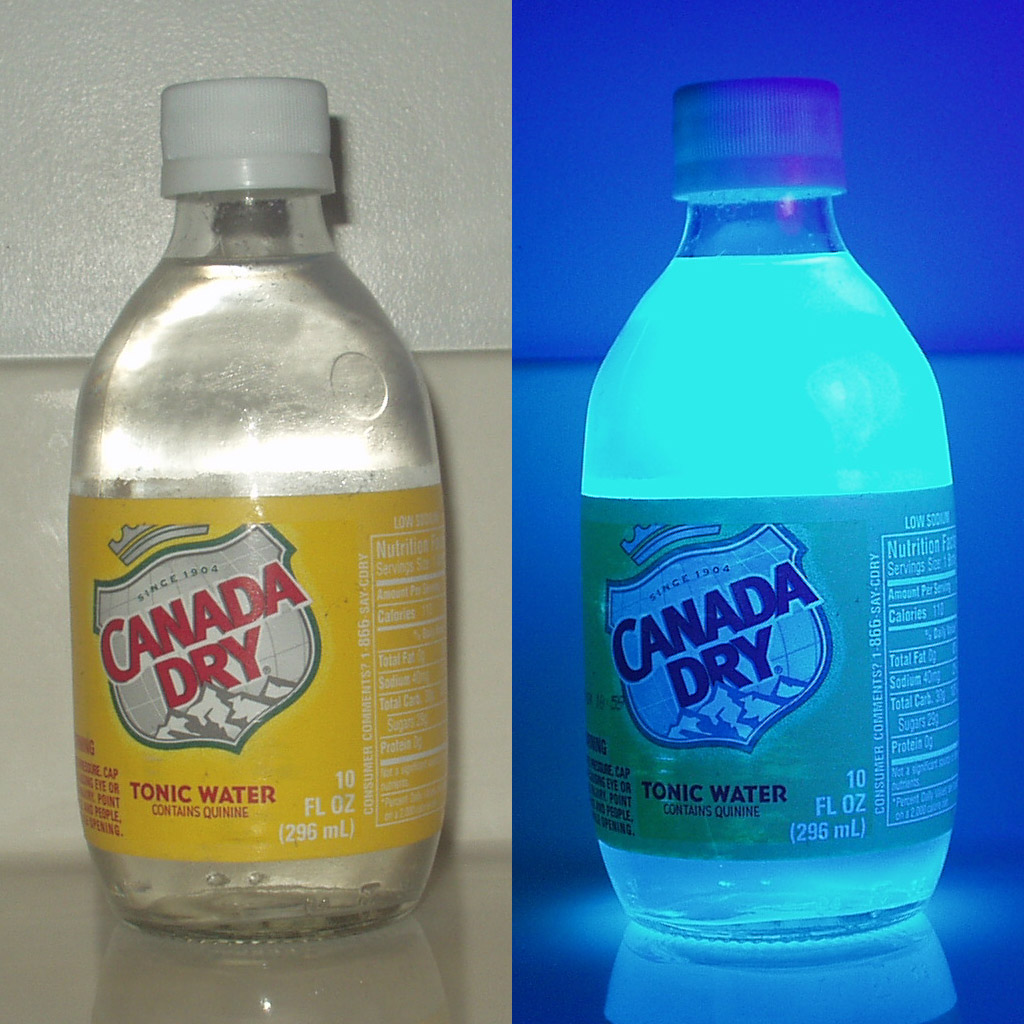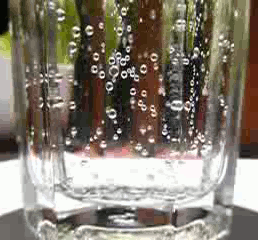|
Belu (company)
Belu is a UK beverage company. The company supplies mineral water, tonic water, a range of flavoured mixers and filtration systems. History Belu was founded in 2004 by film maker ''Reed'' ''Paget'' as a bottled water business with an aim to be an environmentally friendly alternative to other beverages on the market. Before launching Belu, Paget was a keen environmentalist in business communities, encouraging others in the drinks industry to consider the environmental impact of sourcing, manufacturing and packaging. Early stage investors in Belu included Body Shop co-founder Gordon Roddick, environmentalist Ben Goldsmith and hedge fund manager, Chris Cooper-Hohn. Paget launched the UK's first compostable plastic bottle in 2006. Paget appointed Karen Lynch, previously Barclays Branch Marketing Manager, as a new MD in 2010. Lynch expanded the company distribution model to include wholesale and in 2011 she re-launched the Belu brand In 2011, Lynch employed the design agency. This ... [...More Info...] [...Related Items...] OR: [Wikipedia] [Google] [Baidu] |
Beverage Company
The drink industry (or drinks industry, also known as the beverage industry) produces drinks, in particular ready to drink products. Drink production can vary greatly depending on the product being made. ManufacturingDrinks.com explains that "bottling facilities differ in the types of bottling lines they operate and the types of products they can run". Drinks may be canned or bottled (plastic or glass), hot-fill or cold-fill, and natural or conventional. Innovations in the drink industry, catalysed by requests for non-alcoholic drinks, include drink plants, drink processing, and drink packing. Largest companies The largest global players in 2019 were: See also * Alcoholic beverage industry in Europe * Container-deposit legislation * Food industry * Brewing industry * List of drinks * Alcoholic drink * Soft drink * Bottled water * Beverage Digest ''Beverage Digest'' is a privately-owned subscription publication covering the global non-alcoholic beverage industry. The compa ... [...More Info...] [...Related Items...] OR: [Wikipedia] [Google] [Baidu] |
Mineral Water
Mineral water is water from a mineral spring that contains various minerals, such as salts and sulfur compounds. Mineral water may usually be still or sparkling (carbonated/effervescent) according to the presence or absence of added gases. Traditionally, mineral waters were used or consumed at their spring sources, often referred to as "taking the waters" or "taking the cure", at places such as spas, baths, or wells. The term ''spa'' was used for a place where the water was consumed and bathed in; ''bath'' where the water was used primarily for bathing, therapeutics, or recreation; and ''well'' where the water was to be consumed. Today, it is far more common for mineral water to be bottled at the source for distributed consumption. Travelling to the mineral water site for direct access to the water is now uncommon, and in many cases not possible because of exclusive commercial ownership rights. There are more than 4,000 brands of mineral water commercially available worldwide ... [...More Info...] [...Related Items...] OR: [Wikipedia] [Google] [Baidu] |
Tonic Water
Tonic water (or Indian tonic water) is a carbonated soft drink in which quinine is dissolved. Originally used as a prophylactic against malaria, tonic water usually has a significantly lower quinine content and is consumed for its distinctive bitter flavor, though nowadays it is often sweetened. It is frequently used in mixed drinks, particularly in gin and tonic. History As early as the 17th century the Spanish used quinine from the bark of Cinchona trees to treat malaria after being shown the remedy from the Indigenous peoples of Peru, Bolivia, and Ecuador. In early 19th century India and other tropical posts of the British Empire, medicinal quinine was recommended to British officials and soldiers to prevent malaria, where it was mixed with soda and sugar to mask its bitter taste, creating tonic water. The first commercial tonic water was produced in 1858 when it was patented by the owner of Pitt & Co., Erasmus Bond. The mixed drink gin and tonic also originated in Briti ... [...More Info...] [...Related Items...] OR: [Wikipedia] [Google] [Baidu] |
Drink Mixer
Drink mixers are the non-alcoholic ingredients in mixed drinks and cocktails. Mixers dilute the drink, lowering the alcohol by volume in the drink. They change, enhance, or add new flavors to a drink. They may make the drink sweeter, more sour, or more savory. Some mixers change the texture or consistency of the drink, making it thicker or more watery. Drink mixers may also be used strictly for decorative purposes by changing the color or appearance of the drink. They also simply increase the volume of a drink, to make it last longer. Caffeinated beverages Caffeine, a stimulant, masks some of the depressant effects of alcohol. * Coffee * Energy drinks – Red Bull, etc. * Iced tea, sweetened – Lipton BRISK, Nestea, etc. Carbonated mixers and sodas Carbonation adds a festive flair to drinks. It also increases the absorption of the alcohol into the blood stream due to increased pressure in the stomach, potentially resulting in faster intoxication. Retrieved 5 Decemb ... [...More Info...] [...Related Items...] OR: [Wikipedia] [Google] [Baidu] |
Filtration
Filtration is a physical separation process that separates solid matter and fluid from a mixture using a ''filter medium'' that has a complex structure through which only the fluid can pass. Solid particles that cannot pass through the filter medium are described as ''oversize'' and the fluid that passes through is called the ''filtrate''. Oversize particles may form a filter cake on top of the filter and may also block the filter lattice, preventing the fluid phase from crossing the filter, known as ''blinding''. The size of the largest particles that can successfully pass through a filter is called the effective ''pore size'' of that filter. The separation of solid and fluid is imperfect; solids will be contaminated with some fluid and filtrate will contain fine particles (depending on the pore size, filter thickness and biological activity). Filtration occurs both in nature and in engineered systems; there are biological, geological, and industrial forms. Filtration is als ... [...More Info...] [...Related Items...] OR: [Wikipedia] [Google] [Baidu] |
Compostable Plastic
Biodegradable plastics are plastics that can be decomposed by the action of living organisms, usually microbes, into water, carbon dioxide, and biomass. Biodegradable plastics are commonly produced with renewable raw materials, micro-organisms, petrochemicals, or combinations of all three. While the words "bioplastic" and "biodegradable plastic" are similar, they are not synonymous. Not all bioplastics (plastics derived partly or entirely from biomass) are biodegradable, and some biodegradable plastics are fully petroleum based. As more companies are keen to be seen as having "Green" credentials, solutions such as using bioplastics are being investigated and implemented more. However there are many skeptics who believe that bioplastics will not solve problems others expect. History Polyhydroxyalkanoate (PHA) was first observed in bacteria in 1888 by Martinus Beijerinck. In 1926, French microbiologist Maurice Lemoigne chemically identified the polymer after extracting it from ... [...More Info...] [...Related Items...] OR: [Wikipedia] [Google] [Baidu] |
Independent
Independent or Independents may refer to: Arts, entertainment, and media Artist groups * Independents (artist group), a group of modernist painters based in the New Hope, Pennsylvania, area of the United States during the early 1930s * Independents (Oporto artist group), a Portuguese artist group historically linked to abstract art and to Fernando Lanhas, the central figure of Portuguese abstractionism Music Groups, labels, and genres * Independent music, a number of genres associated with independent labels * Independent record label, a record label not associated with a major label * Independent Albums, American albums chart Albums * ''Independent'' (Ai album), 2012 * ''Independent'' (Faze album), 2006 * ''Independent'' (Sacred Reich album), 1993 Songs * "Independent" (song), a 2007 song by Webbie * "Independent", a 2002 song by Ayumi Hamasaki from '' H'' News and media organizations * ''The Independent'', a British online newspaper. * ''The Malta Independent'', a Mal ... [...More Info...] [...Related Items...] OR: [Wikipedia] [Google] [Baidu] |
Barclays
Barclays () is a British multinational universal bank, headquartered in London, England. Barclays operates as two divisions, Barclays UK and Barclays International, supported by a service company, Barclays Execution Services. Barclays traces its origins to the goldsmith banking business established in the City of London in 1690. James Barclay became a partner in the business in 1736. In 1896, twelve banks in London and the English provinces, including Goslings Bank, Backhouse's Bank and Gurney, Peckover and Company, united as a joint-stock bank under the name Barclays and Co. Over the following decades, Barclays expanded to become a nationwide bank. In 1967, Barclays deployed the world's first cash dispenser. Barclays has made numerous corporate acquisitions, including of London, Provincial and South Western Bank in 1918, British Linen Bank in 1919, Mercantile Credit in 1975, the Woolwich in 2000 and the North American operations of Lehman Brothers in 2008. Barclays has a pr ... [...More Info...] [...Related Items...] OR: [Wikipedia] [Google] [Baidu] |
Plastic Bank
Plastic Bank is a for-profit social enterprise founded and based in Vancouver, British Columbia, that builds recycling ecosystems in Underdevelopment, under-developed communities in an effort to fight both plastic pollution in oceans, as well as high poverty levels in Developing country, developing countries. The company allows people living in poverty to collect plastic and trade it in for material goods such as school tuition, medical insurance, pharmaceutical access, internet access, and cooking fuel, with the aim of adding more benefits to their program in the future. Plastic Bank reprocesses collected plastics for reintroduction into the supply chain. They currently have operations in the Philippines, Indonesia, Brazil, and Egypt, with plans to expand into Colombia and Vietnam in the coming years History Plastic Bank was started in 2013 by co-founders David Katz and Shaun Frankson. Their idea was to transform plastics into a form of currency for impoverished peoples. Katz in ... [...More Info...] [...Related Items...] OR: [Wikipedia] [Google] [Baidu] |
Social Enterprise UK
Social Enterprise UK (SEUK; previously The Social Enterprise Coalition) is a community interest company founded in April 2002 in the United Kingdom. It functions as the national membership and campaigning body for the social enterprise movement in Britain. Organisation SEUK liaises with similar groups in each region of England, as well as in Northern Ireland, Scotland and Wales. It is a membership organisation. In 2011, more than seven thousand social enterprises were members of SEUK. Social enterprises sometimes deliver public services. History The Social Enterprise Coalition was founded in April 2002 (SEUK) as a community interest company. In 2007, Claire Dove took over the role of chair from Glenys Thornton, she runs the social enterprise Blackburne House in Liverpool. Between 2007 and 2010, the organisation ran a social enterprise ambassador scheme. It spent £860,000 on the project. The Office of the Third Sector support the ambassador scheme. Since January 2010, SEUK's ... [...More Info...] [...Related Items...] OR: [Wikipedia] [Google] [Baidu] |




